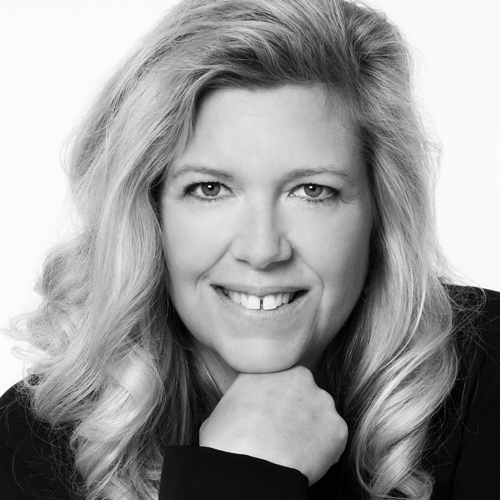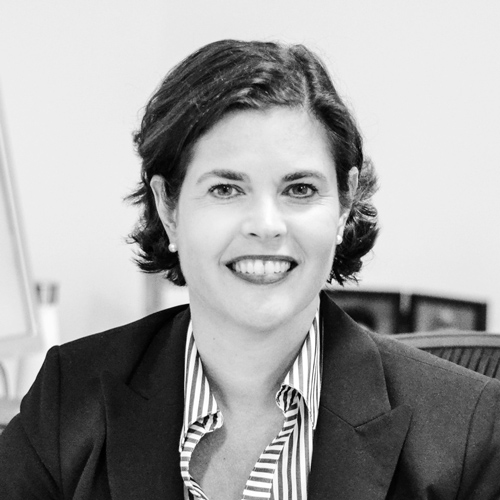As a child, Brian Cooper was the last of six kids, not to mention one half of a pair of twins. There are few constants in a family that large, but if there was one topic that permeated his youth, it was the law.
There’s good reason for that, too. Cooper’s father, Robert, owed everything to it. After growing up in poverty and serving in World War II, he secured a law degree and eventually dedicated his career to the changing landscape of labor employment in the 1960s and 1970s.
“For him, getting a law degree was transformative,” Cooper says. “It was the perfect profession. He always told me that if I had a law degree, I would never go hungry. Even in the worst of times, I could always hang up my own shingle and do legal work.”
Cooper took his father’s advice. He worked for years as a litigator before carving out a new wrinkle in his family’s legacy by becoming the general counsel at CPG International, an industry leader in the field of building products forged from alternative materials.
He wasn’t alone, either. After summers spent drafting documents in their father’s office, three of Cooper’s brothers followed in his footsteps. Credit Robert’s enthusiasm for inspiring his children in such a way. Cooper fondly recalls his father’s reverence for his work. “When I was a kid, he would always tell me about the law, why it was so important, and how we were so lucky to live in a country of laws,” Cooper says. “He instilled in me a reverence and respect for the law.”
And it wasn’t just his words that motivated Cooper and his brothers; it was the weight of his work, a dedication to fighting for equal rights and fair treatment for workers of all stripes. Some of his children even followed in their father’s footsteps by working in labor employment themselves, including Cooper, who served as a litigator in that space for years.
“My father came along at a time when all the rules changed,” he says. “I remember him coming home and telling us how excited he was that the laws were changing and how the law was beginning to provide employees with more rights. He was able to protect a lot of people who’d been fired unfairly and get justice for them. He took great satisfaction from being a lawyer. “It was a really big part of his identity, so he conveyed that to us all the time.”
It was evident in his actions as well. He practiced all the way up until his mid-70s, when Cooper and his siblings “made him quit.” Though he had achieved everything he wanted in his career, there was one dream that remained elusive. “He always wanted us to have a law firm—a Cooper, Cooper, Cooper, and Cooper law firm,” Cooper says. “But, all of us wanted to do our own thing.”
One of Cooper’s brothers runs his own practice, and the two others work for established law firms. He also has a brother-in-law who’s a lawyer. Cooper is the only one to have left his family’s home state of California, though, his position at CPG having brought him to Skokie, Illinois.
Cooper says that, at first, his father wasn’t a big fan of his decision to go in-house. “He liked the idea of working on your own and in your own practice,” he says. “That gave you the most freedom. He was always worried that working for a company was a bit of a crapshoot.”
Still, Robert was pleased by his son’s success. And though Cooper didn’t take his advice, he continues to influence his son’s career. Cooper describes his father as a teacher, and it’s clear from the way he discusses his role at CPG that he considers himself one, too.
“I love working in-house, where I can help my company avoid getting into legal problems and convey to the stakeholders how the law works and how it applies to them,” Cooper says. “I work very closely with our CEO and our senior leadership, and I enjoy getting to counsel them. To me, it’s very satisfying when you know you’ve helped to avoid legal issues or potential problems—and much more enjoyable than litigating about alleged legal violations that have already occurred.”
Even though Cooper has carved out his own career, he still considers himself a student. Part of what he enjoys about being a general counsel is his ability to see how a company operates. “At CPG, we make really interesting products such as composite decking, rail, and trim,” he says. “It’s very fun to work for a company that actually makes a product, and I love that we manufacture the products in the US. I get to work with very interesting and capable people in all the key areas of the company such as marketing, HR, and sales. It’s fascinating to see how all the different areas of the company work together.”
He feels privileged that his role as general counsel necessitates his involvement, at least in some capacity, in most of the company’s major decision-making. “Getting to participate in so many different areas of the company means I rarely have a boring day,” he says. “One day I might be advising the marketing department on what claims we can make in our advertising, while the next day I might be working with R&D to determine whether we can seek patent protection for a new product. Unlike many attorneys, who try to specialize in one area, as general counsel I need to be a generalist and be able to work in many different areas of the law. When you’re at a law firm, you may see little bits and pieces of these things, but you don’t get the whole picture.”
While Cooper loves his career, he’s not as eager as his father was to nudge his children to pursue law. He says the field just isn’t the same as it was when his father was practicing—or when he and his wife entered the profession in the early 1990s. “It’s less collegial now, especially since when my father practiced, and it’s also harder to get those first jobs and pay off their student loans,” he says.
He also acknowledges that the intensity of the profession can make it difficult to balance work and family. His nineteen-year-old daughter, he says, is pursuing a career in finance instead.
But you don’t need to be a lawyer to live the lessons Robert Cooper passed down to his family. After all, what resonates most from Cooper’s recounting is the passion his father brought to his work. Passion transcends profession.


